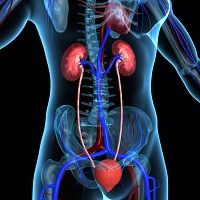Chronic Kidney Disease: Sleep Problems Increases with Disease Progression
Lack of sleep and chronic kidney disease (CKD) independently lead to hypertension, diabetes mellitus, lower quality of life, and shorter life expectancy. Severity of CKD and sleep disturbances may also worsen diabetes and hypertension synergistically.

Lack of sleep and chronic kidney disease (CKD) independently lead to hypertension, diabetes mellitus, lower quality of life, and shorter life expectancy. Severity of CKD and sleep disturbances may also worsen diabetes and hypertension synergistically.
An article published in the March 2015 issue of Renal Failure presents a study pursuing the relationship between CKD-induced sleep dysfunction and these sleep disorders. The study’s primary objective was to assess the factors associated with sleep quality in CKD patients, and to estimate the point prevalence of sleeping problems among these patients.
The study population consisted of 303 total CKD patients (178 male, 125 female) from the St. John’s Canada area. Of the 303 total, one-third (101) of patients were receiving dialysis. Patients with hearing or vision problems were excluded because of informed consent concerns.
Previous studies have not shown a relationship between hypertension and sleep quality. In this study, however, mean arterial and pulse pressures were higher and sleep quality was lower in patients with more advanced disease (those requiring dialysis).
Female sex and lower mental summary scores (social functioning, role emotional, and mental health scores from SF-36) were associated with lower quality sleep as well. More than half of females in this study reported poor sleep quality.
Age did not appear to be a factor affecting sleep quality in this population. This study did not show diabetes incidence to be predictive of sleep disturbance incidence or vice versa.
Various means of diagnosing sleep disorders are available, and this study used the Pittsburgh Sleep Quality Index as a diagnostic tool. Many other studies use polysomnography—considered a gold standard—and the fact that this study did not use the gold standard is a limitation.
Sleep issues are prevalent in CKD patients, especially females and patients with lower mental summary scores (compared to the general population). Both CKD and sleep disturbances affect quality of life and life expectancy. Negative synergy exists between these two disorders.